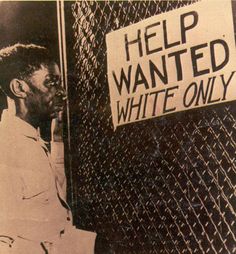
Education is not the great equalizer it is often thought to be, specifically when it comes to race. Michael Gaddis explored whether college selectivity affects labor market outcomes differently based on the race of the applicant. He did this to determine if economic inequality among college educated people of different races can be explained by racial discrimination in the labor market or by differences in human capital.
Some scholars contend that employers choose white candidates over black candidates more frequently due to differences in school quality, curriculum, and other indicators of human capital. To test this explanation, Gaddis created pairs of fictitious candidates, one black and one white, with degrees from similarly prestigious institutions. He assigned candidates common names on birth records associated with a particular race. The “candidates” applied for 1,008 jobs in three geographic regions in the U.S. that were listed on a national job-search website. Focusing on candidates who received a response, he analyzed how race and college selectivity influenced the occupation type and potential salary range offered.
The results suggest that credentials from an elite university do not provide the same occupational opportunities for blacks as they do for whites in the labor market. Gaddis found that when employers responded to black candidates, it was for jobs with lower starting salaries and lower prestige as compared to whites. Gaddis concluded that this has important implications for current debates regarding affirmative action.
You can read the full article here:
Gaddis, S. M. (2015). Discrimination in the credential society: an audit study of race and college selectivity in the labor market. Social Forces, 93(4), 1451-1479.
Sarah Garcia is a graduate student in Sociology at the University of Minnesota who studies population health and inequality.




Comments 1
Eugene Owens — April 15, 2017
I read the article for my class assignment. I know of similar situations where an African American talks like a white person over the phone and when they met realizing he was African offered him another position stating the original position had been filled.